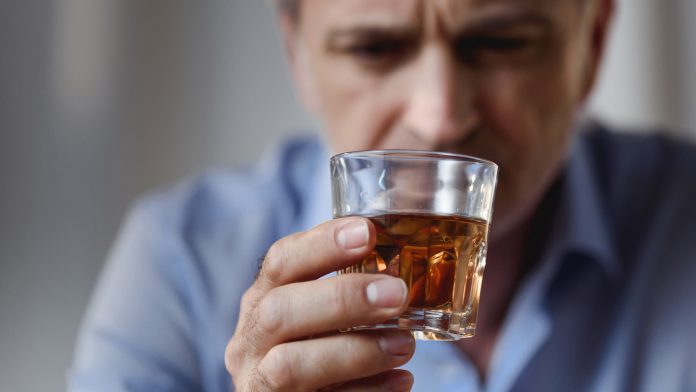
Experts warn that the COVID-19 lockdown could lead to a surge of alcohol and drug addiction relapses.
The UK’s leading addiction treatment provider has warned how the current COVID-19 crisis is affecting those suffering with drug and alcohol addiction in seeking the immediate help they need because of a ‘media-fuelled, widespread assumption that everything has stopped’, whilst at the same time, predict a surge in the number of people relapsing back into drug and alcohol abuse.
The UK Addiction Treatment Group, also known as UKAT, has revealed that admissions into its seven residential rehabilitation facilities across the country has reduced by almost 20% in the last month alone.
Treating addiction during lockdown
On average UKAT admits 160 patients per month, treating upwards of 2,000 addicts each year. However, in the last four weeks it has only admitted 146 clients.
Since the country-wide lockdown began, UKAT is warning that there will be countless people in serious danger at home, as the assumption that all treatment other than that for COVID-19 has stopped.
UKAT’s Group Treatment Lead, Nuno Albuquerque, said: “There are people who need immediate treatment for drug and alcohol addiction, and their needs run in parallel with the people who need immediate treatment for COVID-19.
“Our concern is that since the country was advised into lockdown, almost everywhere and everything has closed and stopped, and unfortunately this has led to a widespread assumption that this also includes treatment facilities like ourselves. But this is not the case.
“We are still admitting clients every day, we are fighting a pandemic within a pandemic, and by following regulations and protocols provided by Public Health England, the wonderful NHS and the Care Quality Commission, we continue to provide exceptional addiction treatment for those most vulnerable in society at this extremely difficult time. No one should be suffering with addiction without being able to access the help that they need.”
The crisis has forced vital support services for those already in recovery, such as Alcoholics Anonymous, Narcotics Anonymous and Cocaine Anonymous groups, into providing their help virtually.
Relapsing during lockdown
The experts at UKAT now warn of a potential surge in the number of people relapsing in the community, as the pressures from lockdown could scupper those in stable recovery from drugs and alcohol across the country.
As for addicts seeking initial treatment and to start their road to recovery, there is almost nowhere for them to go, other than to hospital.
Recent Public Health England data revealed that the number of people admitted into hospital because of alcohol has risen by 60% and for drugs by 30% in the last decade, a figure that has risen year on year for the last ten years.
Nuno continued: “Just because we are in the midst of the coronavirus crisis does not mean that your family members, friends, colleagues or neighbours won’t be suffering with the addictive tendencies that they had before the virus hit this country. Unfortunately, we are speaking with and supporting a handful of clients who have unfortunately relapsed back into drug and alcohol abuse during the crisis, and we predict this to continue.
“People are still suffering, and probably even more so now. It’s hard to describe how important it is that these people still get the help they need today, not when the pandemic has passed, because for some, that might be too late.”
UKAT has now put safety precautions into place that not only follow the advice provided by Public Health England, the NHS, and the Care Quality Commission, but go further to protect clients and their staff.
New clients seeking addiction treatment must first spend seven days in supported isolation at one of UKAT’s two Shielding Facilities, and if they are without any symptoms, they will then begin their treatment programme at one of their residential rehabilitation centres.
For more information on UKAT’s COVID-19 Safety Measures, visit www.ukat.co.uk/covid19-updates/coronavirus-safety-measures/.






















